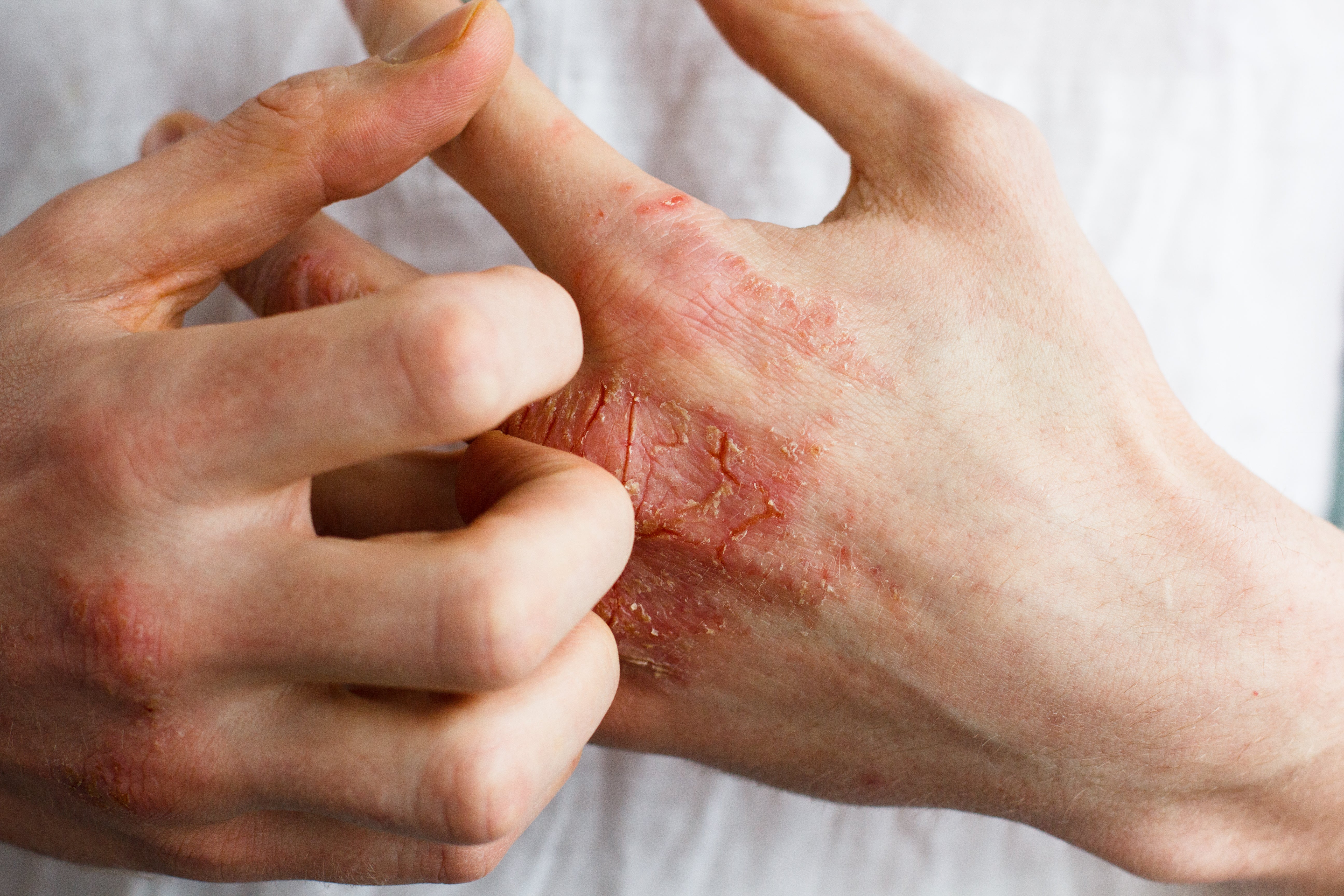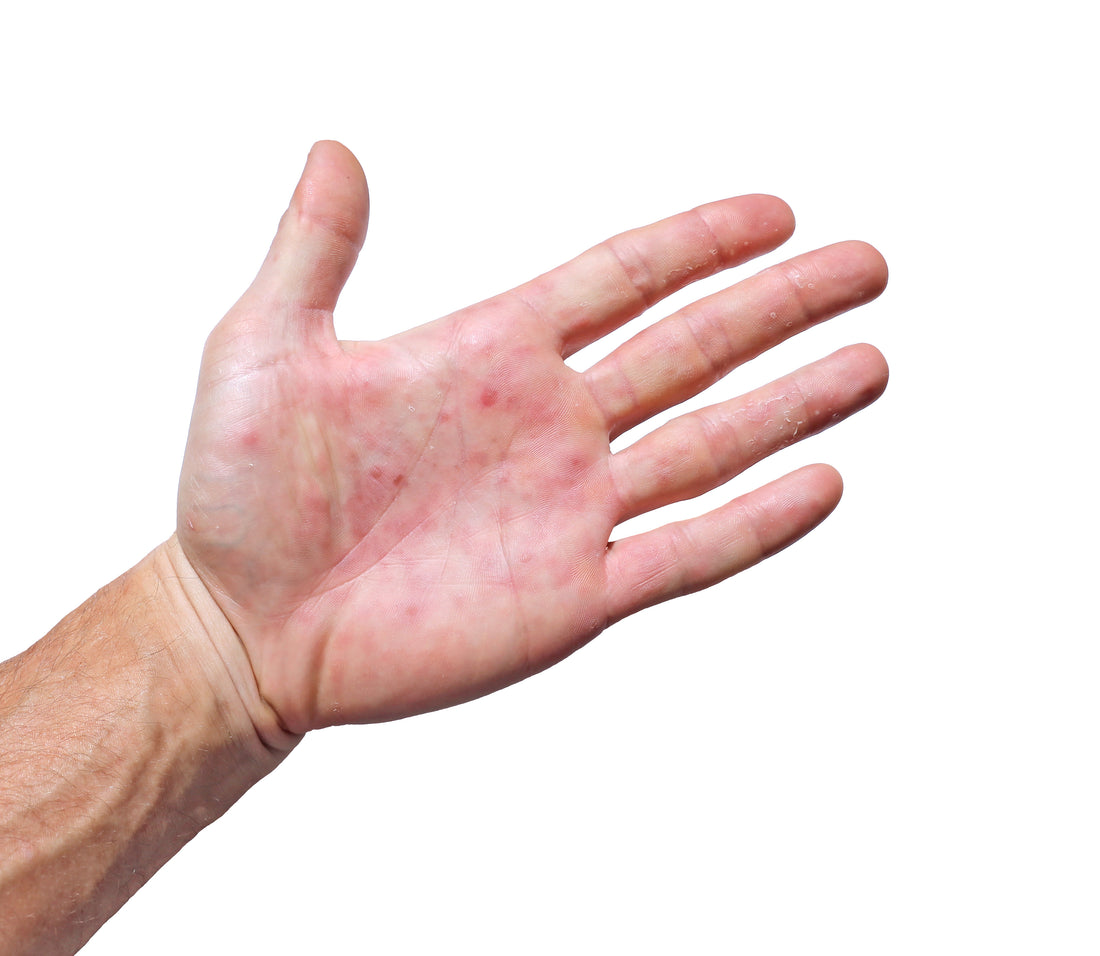So why does eczema itch? In this blog we cover the reason for the itch sensation within the condition of eczema and scientifically what goes on within our body when we feel itchy!
The reason's we itch:
- Skin barrier dysfunction: Eczema is often associated with a compromised skin barrier, which allows irritants and allergens to penetrate the skin more easily. This leads to an immune response and the release of substances such as histamine, which triggers itching.
- Inflammatory response: Eczema is an inflammatory condition, and inflammation in the skin can induce itching. Inflammatory cells release chemicals that stimulate nerve endings and cause itching sensations.
- Dry skin: People with eczema often have dry skin, which can make the skin more prone to itching. Dryness can lead to an increased loss of moisture from the skin, causing it to become dry and itchy.
- Nerve hypersensitivity: In eczema, the nerves in the affected skin may become hypersensitive, meaning they are more responsive to itching stimuli. Even minor triggers can cause intense itching sensations.
- Scratching cycle: The act of scratching provides temporary relief from itching, but it can also damage the skin further, leading to more inflammation and triggering a vicious cycle of itching and scratching. Break this cycle by using a Scratch Star, or Scratch Attack Roller!
- Psychological factors: Eczema can have a significant impact on a person's emotional well-being, leading to stress and anxiety. These psychological factors can contribute to increased itching sensations.

It's important to note that everyone's experience with eczema may vary, and different triggers may cause itching in different individuals. It's recommended to work with a healthcare professional to develop an individualized management plan to address both the underlying causes of eczema and strategies to alleviate itching.
So.. Scientifically what is happening in my body to cause the itchiness sensation?
The itchiness sensation experienced in eczema is a complex process involving various biological mechanisms. Here's a more detailed scientific explanation of what happens in your body to cause itchiness:
1. Nerve stimulation: When your skin is inflamed due to eczema, immune cells release substances called cytokines and histamines. These chemical messengers stimulate specialized nerve fibers called C-fibers and Aδ-fibers, which are responsible for transmitting the sensation of itchiness to the brain.
2. Histamine release: Histamine is a key mediator involved in the itch response. In response to inflammation, mast cells in the skin release histamine. Histamine binds to specific receptors on nerve cells, triggering the sensation of itchiness.
3. Nerve transmission: Nerve fibers transmit the itch signal from the skin to the spinal cord and then to the brain. Itch-specific neurons in the spinal cord transmit the signal to higher brain regions, including the thalamus and the somatosensory cortex, where the itch sensation is perceived.
4.Neural pathways: Multiple neural pathways are involved in the itch sensation. The spinothalamic pathway is one of the major pathways responsible for transmitting itch signals from the spinal cord to the brain. The brain also receives inputs from other areas, such as the limbic system, which is involved in emotional responses.
5. Neurotransmitters: Various neurotransmitters play a role in itch transmission. Besides histamine, other substances like substance P, serotonin, and gastrin-releasing peptide (GRP) are involved in mediating itch signals in the nervous system.
6. Central processing: Itch signals are processed and interpreted in the brain. The brain integrates the sensory input with emotional and cognitive factors, determining the perception of itchiness. Factors such as stress, anxiety, and attention can influence how intensely you perceive the itch sensation.
It's important to note that the exact mechanisms of itch in eczema are still an area of active research, and further studies are being conducted to gain a more comprehensive understanding of this complex phenomenon.








